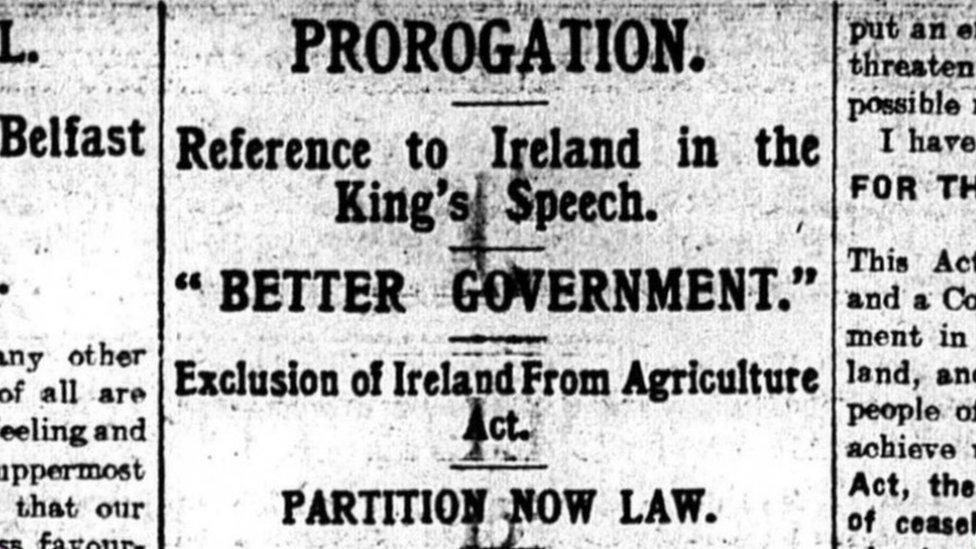NI100: How did the papers report the Anglo-Irish Treaty?
- Published

The Irish News like many papers printed the full text of the deal
On the morning of 6 December 1921, news began to filter out from London that a treaty had been signed between the British government and Irish republican negotiators.
The deal, which still had to be ratified by the Dáil (Irish parliament), was intended to end the Irish War of Independence and create an independent Irish Free State.
Northern Ireland was to be given a chance to opt out, meaning partition of the island would be made permanent.
This, as well as the requirement of MPs in the Dáil to swear an oath to King George V, left Ireland bitterly divided, a situation reflected in the press.
In Belfast, the unionist press reacted with disgust to the news.
'Downfall of the Empire'
The Belfast Telegraph focused on the section of the treaty that said if Northern Ireland did opt out, a commission was to be set up to finalise the new Irish border.
Its main headline read: "Terms of Agreement: If Ulster Loyal Then Cut Boundaries."
It described the treaty as: "A treaty which cuts Ulster out of the old intimacy of Imperial connection and seeks to precipitate her instead into closer relations with those who in Britain's darkest hour engineered a rebellion and stabbed Great Britain in the back."
The Telegraph was also critical of the oath, which did not specifically require "allegiance" to the King.
It wrote: "When it comes to His Majesty the King and the British Commonwealth the word 'allegiance' is studiously and deliberately omitted.
"The only conceivable reason for this extraordinary omission is the fact that the Sinn Féin delegates refused such allegiance and the representatives of the British government, acting as His Majesty's ministers, assented to the omission and, in doing it, stultified and discredited themselves and humiliated the sovereign."
The paper concluded that the British negotiators were: "The men who have engineered the beginning of the downfall of the British Empire."
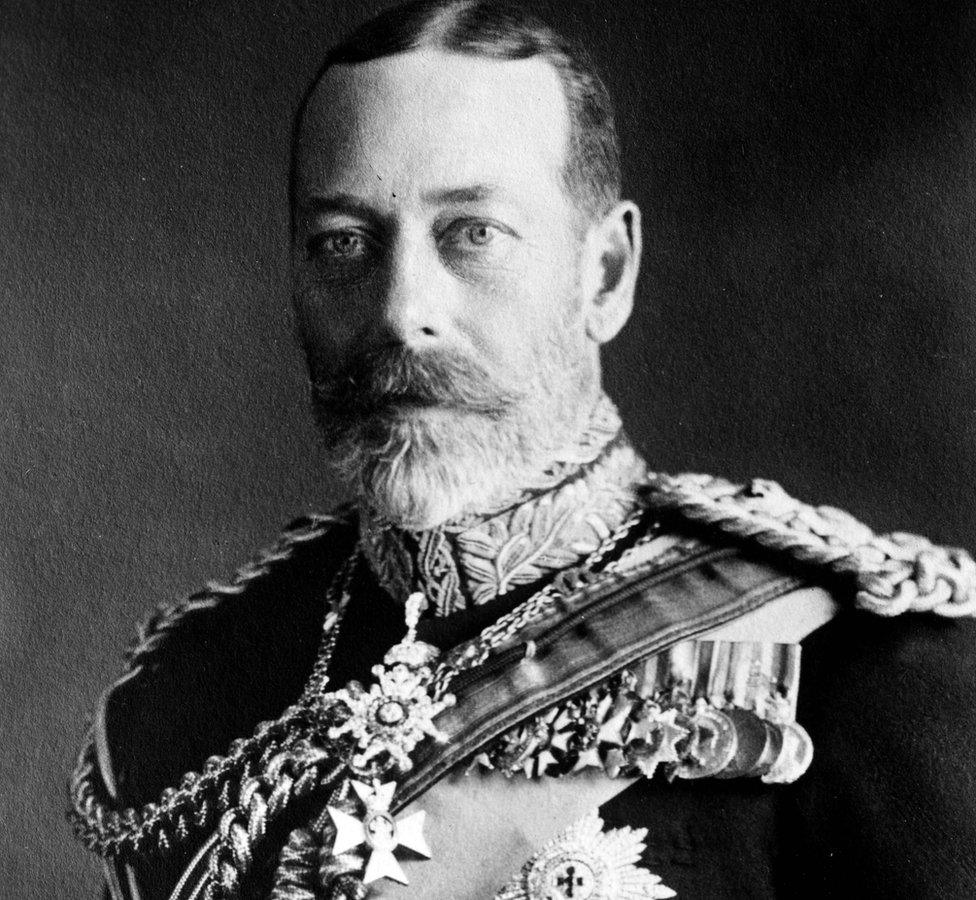
The Belfast Telegraph considered the oath to be an insult to King George V

The News Letter was no more enthusiastic, although it did hedge its bets by saying it did not want to make a "definite pronouncement" until it had fully analysed the treaty.
It also focused, however, on the boundary commission's role, saying: "There is one point in it, however, which it will be difficult for the Northern Parliament to accept and that is the revision of the boundaries of Northern Ireland by a commission.
"The object with which the Boundary Commission is proposed is to make sure that the number of Roman Catholics who are likely to remain under the Northern Parliament shall be the smallest possible, while the number of Protestants who are to be placed under the Southern Parliament shall be the largest possible.
"That is what the Sinn Féiners want and they have persuaded Mr Lloyd George and his colleagues to assent to it. We can only say of its authors, as ex-President Wilson said of the rulers of Germany, that they are men without conscience and who do not intend justice."
'Entirely without information'
The paper also included a detailed breakdown of how the terms of the deal were brought to Belfast.
After the deal was signed in 10 Downing Street shortly after 02:00, one of Prime Minister David Lloyd George's private secretaries took it to Euston station and boarded a special train to Holyhead.
From there he sailed to Belfast on the Royal Navy destroyer HMS Salmon and arrived at 14:30, finally reaching Northern Ireland Prime Minister Sir James Craig soon after.
The News Letter said: "While he was on his journey Sir James Craig was entirely without information for the best part of the day as to how the document would reach him."
The Irish News also steered clear of immediate commentary on the deal, but its headline did proclaim "British Interests Fully Protected" as well as saying "Ulster Included Unless it Contracts Out on New Boundary Lines".
The paper also reported remarks from Éamon de Valera, speaking in Limerick, who said he was "ready to clasp the hand of the dissenting minority".
It made space for remarks by Lord Birkenhead, the lord chancellor and one of the British negotiators, under the heading "A Fervent Appeal to Sir J Craig and Men of Ulster to Join Irish Free State".
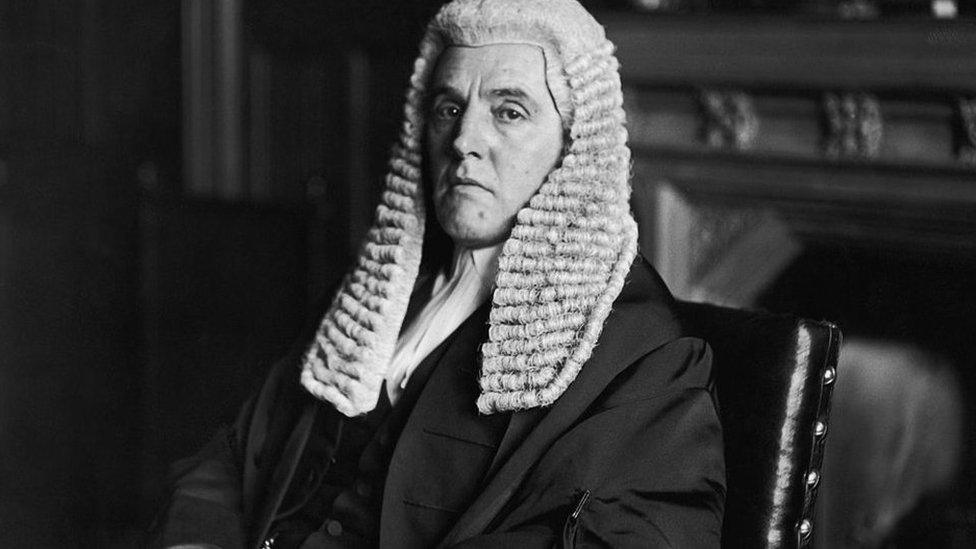
Lord Birkenhead was quoted at length in the Irish News
The paper reported Lord Birkenhead as saying: "I would appeal to him [Craig] as one friend to another, as one old colleague to another, and to the men of whom he is the type and representative, that before they decide between the alternatives which are open to them, they should consider whether they cannot safeguard to the full those interests and yet serve the cause of Imperial unity and strength by joining the Irish Free State.
"These are great times - great issues are at stake."
The Dublin Evening Telegraph greeted the deal with a sense of relief.
Its brief news on the night of 6 December carried the headline "Settlement Same As South Africa", reflecting the proposal that the Irish Free State would be a dominion in the British Empire.
It reported: "The news that a settlement had been reached was received in Belfast with incredulous amazement at first and with intense gratification by nationalists of all shades."
The following night it proclaimed "Victory for Ireland" and praised the Irish negotiators.
It said: "Ireland's delegates to the peace conference have passed through an ordeal which put to the severest test their courage and their statesmanship.
"Before the world they have triumphantly proved that Dáil Eireann was well inspired when it chose these men as Ireland's plenipotentiaries.
"The dawn of peace is here and hopes are high for what the new day will bring forth. For the shaping of her destinies, Ireland has to trust the energies of her own children."

The BBC News NI website has a dedicated section marking the 100th anniversary of the creation of Northern Ireland and partition of the island.
There are special reports on the major figures of the time and the events that shaped modern Ireland available at bbc.co.uk/ni100.
Year '21: You can also explore how Northern Ireland was created a hundred years ago in the company of Tara Mills and Declan Harvey.
Listen to the latest Year '21 podcast on BBC Sounds or catch-up on previous episodes.

Related topics
- Published5 December 2021
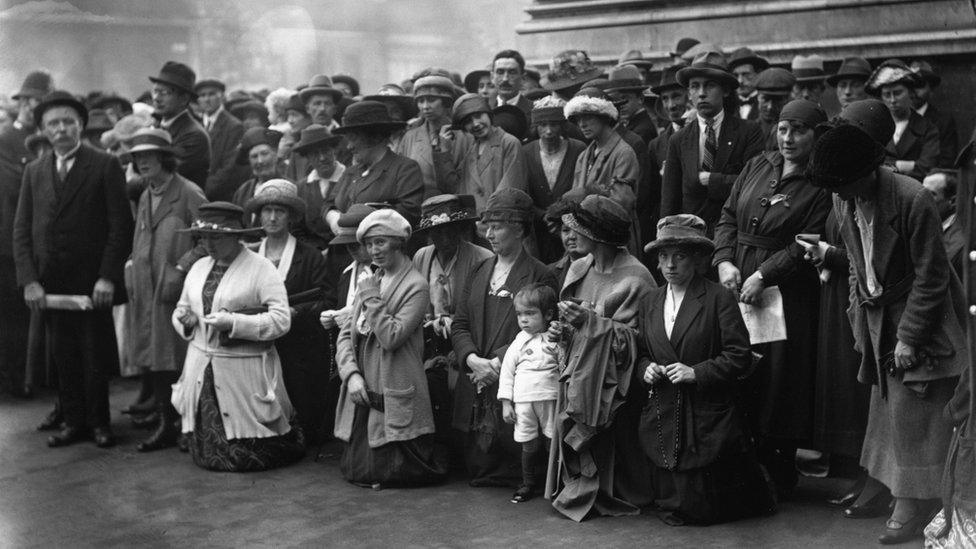
- Published6 December 2021
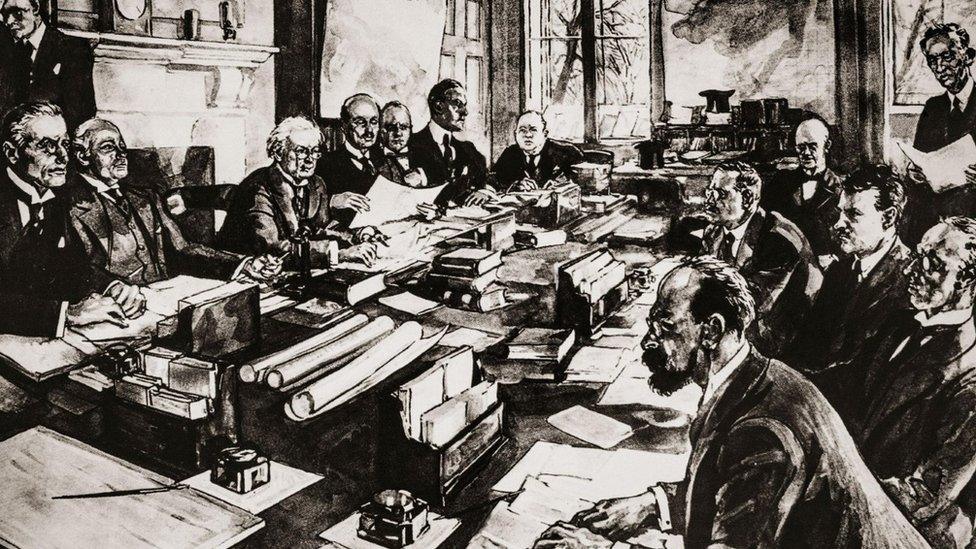
- Published22 June 2021
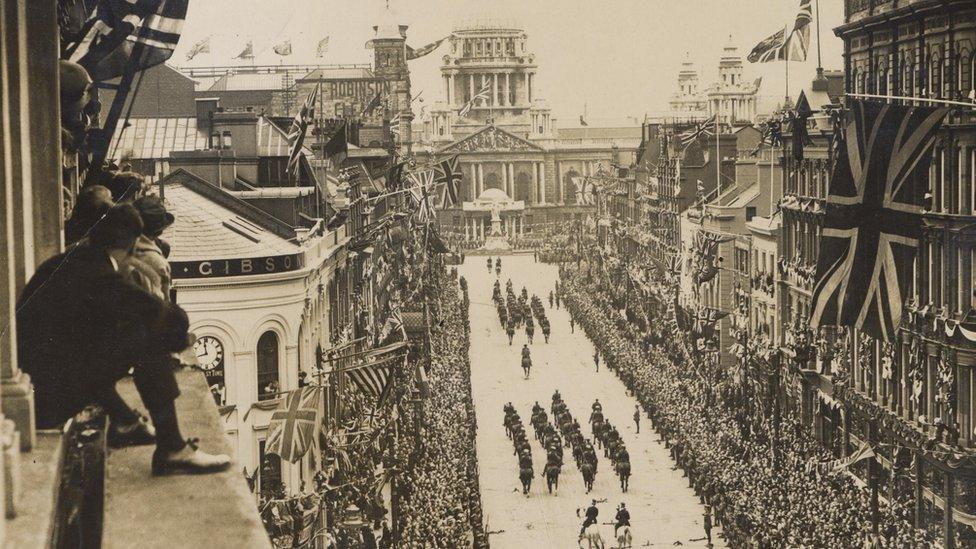
- Published6 December 2021
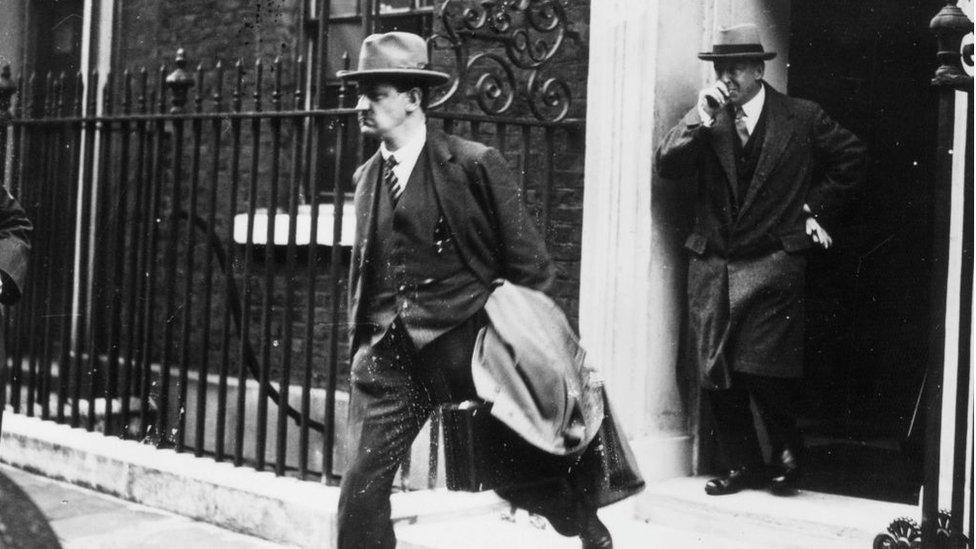
- Published24 December 2020
